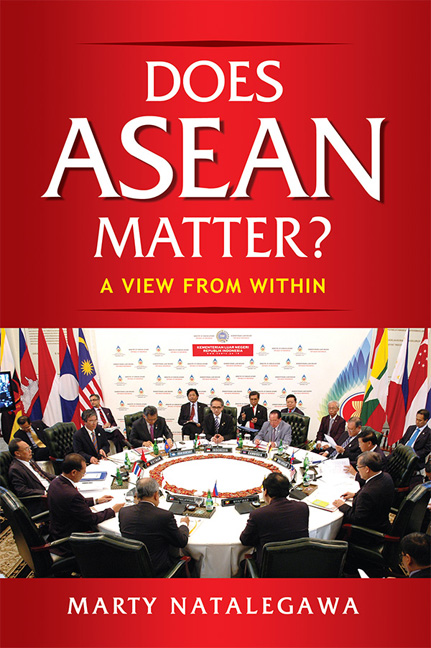Book contents
- Frontmatter
- Dedication
- Contents
- Introduction
- 1 Statecraft and Diplomacy in a World Transformed: 1967–2017
- 2 Southeast Asia: From Trust Deficit to Strategic Trust
- 3 ASEAN and the Region: From Cold War Pawn to ASEAN Centrality
- 4 From State-centric to People-centred ASEAN
- 5 ASEAN: Wither or Prosper?
- Appendix 1 Guidelines for the Implementation of the DOC
- Appendix 2 Declaration of the East Asia Summit on the Principles for Mutually Beneficial Relations
- Appendix 3 Statement of Asean Foreign Ministers on Asean's Six-Point Principles on the South China Sea
- Index
- About the Author
- Plate section
1 - Statecraft and Diplomacy in a World Transformed: 1967–2017
Published online by Cambridge University Press: 08 June 2019
- Frontmatter
- Dedication
- Contents
- Introduction
- 1 Statecraft and Diplomacy in a World Transformed: 1967–2017
- 2 Southeast Asia: From Trust Deficit to Strategic Trust
- 3 ASEAN and the Region: From Cold War Pawn to ASEAN Centrality
- 4 From State-centric to People-centred ASEAN
- 5 ASEAN: Wither or Prosper?
- Appendix 1 Guidelines for the Implementation of the DOC
- Appendix 2 Declaration of the East Asia Summit on the Principles for Mutually Beneficial Relations
- Appendix 3 Statement of Asean Foreign Ministers on Asean's Six-Point Principles on the South China Sea
- Index
- About the Author
- Plate section
Summary
Of various historical epochs, the fifty-year span between 1967 and 2017 is as much a study in contrast and change as any other fivedecade period that preceded it. The period saw the world's population more than doubling: from some 3.5 billion people in 1967 to some 7.5 billion in 2017. ASEAN's population alone, from ASEAN-5 to ASEAN-10, increased from 185 million in 1967 to 634 million in 2016. It witnessed the growth of the world's GDP from US$2.253 trillion in 1967 to US$74.152 trillion in 2015. Not least, it heralded the birth of significant numbers of new sovereign states, due primarily to the demise of colonial rule in much of Asia and Africa and, in the later years, the collapse of the former Soviet Union and Yugoslavia. In 1967 the United Nations had a membership of 123 states, while in 2017 the number stood at 193.
However, such figures do not tell the entire story. In order to better comprehend the situation, an appreciation of the underlying dynamics is essential.
Thus, the aggregate world population figure does not reveal the fact that the Indo-Pacific, that wide geographic expanse which encompasses the countries of the Asia-Pacific and the Indian Ocean, continues to constitute the bulk of the world's population, with no less than six out of ten of the most-populated countries in the world to be found among them. It also conceals the fact that the last fifty years saw the marked ageing of populations in some countries, while others, notably in significant parts of Southeast Asia, have been the beneficiaries of demographic dividends. Thus, within ASEAN, the labour force increased from some 115 million people in 1984 to approximately 327 million people in 2016.
Further, while the period witnessed a tremendous spurt in the number of independent sovereign states, the full impact and potential of such a development has been constrained by a lack of corresponding reform in the institutions of global governance to better reflect these changing global realities.
Thus, for example, the United Nations Security Council last underwent reform in its membership in 1961; increasing the number of the elected, non-permanent members from six to ten.
- Type
- Chapter
- Information
- Does ASEAN Matter?A View from Within, pp. 6 - 13Publisher: ISEAS–Yusof Ishak InstitutePrint publication year: 2018

